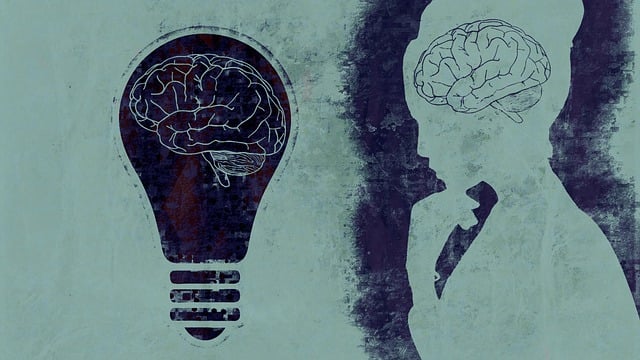Understanding and addressing mental health issues in elders necessitates specialized approaches like EMDR-certified therapy, which effectively manages trauma, depression, and anxiety. This method, combined with eye movement desensitization and reprocessing (EMDR), allows for personalized self-care routines and improved emotional regulation through specific protocols. By analyzing data holistically, mental health professionals can tailor treatment plans, integrate cultural sensitivity, and prevent caregiver burnout, ultimately enhancing the well-being of both caregivers and their elderly patients. EMDR-certified therapists focus on qualitative improvements in daily functioning, quality of life, and emotional well-being for elders seeking therapy.
Mental health data analysis plays a pivotal role in enhancing therapeutic outcomes, especially for elderly patients. This article delves into crucial aspects of understanding and interpreting mental health data specific to elders, highlighting the significance of techniques like Eye Movement Desensitization and Reprocessing (EMDR) in certified therapy practices. We explore strategies for effective data-driven treatment plans and measure success through evaluating the impact on elderly patients’ well-being. By leveraging data analysis, therapists can tailor interventions for optimal mental health outcomes.
- Understanding Mental Health Data for Elders
- The Role of EMDR in Therapy and Data Interpretation
- Analyzing and Interpreting Data for Effective Treatment Plans
- Measuring Success: Evaluating the Impact of Therapy for Elderly Patients
Understanding Mental Health Data for Elders

Understanding mental health data among elders is a specialized field that requires tailored approaches. The unique challenges faced by older adults, such as age-related cognitive changes and chronic illnesses, often manifest differently in their psychological experiences. Therefore, analyzing their mental health data involves recognizing these nuances and adapting evidence-based practices accordingly. Therapy for elders, including EMDR (Eye Movement Desensitization and Reprocessing) certified treatments, plays a pivotal role in addressing complex issues like trauma, depression, and anxiety.
By implementing effective communication strategies, mental health professionals can foster a supportive environment for elders to express their concerns openly. This collaborative process enables the development of personalized self-care routines, which are crucial for managing mental health effectively. Furthermore, crisis intervention guidance tailored to elders’ needs ensures that they receive prompt and appropriate support during times of acute distress.
The Role of EMDR in Therapy and Data Interpretation

Eye Movement Desensitization and Reprocessing (EMDR) is a powerful therapy technique that has gained significant recognition in mental health treatment, particularly for elders seeking emotional healing. As an EMDR-certified therapist, facilitating this process involves guiding clients through specific protocols to process traumatic memories and beliefs, thereby enhancing their overall well-being. The role of EMDR goes beyond conventional therapy methods by integrating communication strategies tailored to the unique needs of seniors.
In data interpretation, EMDR offers a structured approach to understanding complex emotional responses. By combining bilateral stimulation with client recollection of distressing events, therapists can aid in the reprocessing of traumatic memories, leading to improved emotional regulation. This technique not only supports elders in overcoming past challenges but also equips them with self-care routine development strategies for better mental health management.
Analyzing and Interpreting Data for Effective Treatment Plans

Effective treatment plans for mental health issues, especially among elders, heavily rely on thorough data analysis and interpretation. By examining trends within patient records, mental health professionals can identify patterns that point to specific needs. For instance, analyzing the emotional responses of elderly patients during EMDR (Eye Movement Desensitization and Reprocessing) therapy sessions could reveal unique triggers and coping mechanisms, allowing for personalized care. This process ensures that treatment strategies are not only evidence-based but also culturally sensitive, taking into account individual preferences and backgrounds, as per Cultural Sensitivity in Mental Healthcare Practice.
Moreover, interpreting data can help in early detection of potential burnout among healthcare providers, a significant concern given the demanding nature of the job. By monitoring stress levels and emotional exhaustion, mental health professionals can implement Burnout Prevention Strategies for Healthcare Providers, ensuring they remain equipped to deliver quality care. Stress management techniques, integrated into these strategies, become vital tools in maintaining a healthy work-life balance for both providers and their elderly patients.
Measuring Success: Evaluating the Impact of Therapy for Elderly Patients

Measuring success in therapy for elderly patients is a multifaceted process that goes beyond simple numbers. While quantifiable outcomes like reduction in symptom severity or medication adjustments offer a baseline, truly evaluating the impact involves delving into qualitative aspects. Therapies like EMDR (Eye Movement Desensitization and Reprocessing), particularly effective for elders due to its non-invasive nature, must be assessed holistically. This includes gauging improvements in daily functioning, quality of life, and emotional well-being.
EMDR-certified therapists play a crucial role in implementing empathy-building strategies tailored to the unique needs of elderly clients. By fostering a sense of safety and trust, these professionals facilitate open discussions about traumatic experiences or long-standing mental health challenges. Moreover, they guide patients in developing robust self-care routines for better mental health and resilience building, ensuring that therapy translates into lasting positive changes.
Mental health data analysis plays a pivotal role in crafting effective treatment plans for elderly patients. By understanding specific needs, such as those highlighted for elders and leveraging therapeutic techniques like EMDR, professionals can interpret data to measure success and improve outcomes. For EMDR-certified therapists, this process is crucial in providing tailored care that resonates with each patient’s unique journey. Through diligent analysis, we can ensure the therapy we offer is not just active but also restorative, ultimately enhancing the quality of life for our elderly clients.









